When faced with a sudden area-wide power outage, having a little diesel generator is really handy. It also comes in handy if working on an entirely off-grid project or in organizing any kind of remote outdoor event. The small diesel generator can withstand high winds and loads, remaining dependable, and provides power so that lights stay on and machines keep running. These kinds of generators are designed to provide a reliable power source in various situations; thus, they can be referred to as genuine toolkits for professional and personal applications. This blog will place greater emphasis on the advantages, features, and practical applications of small diesel generators, providing you with insight into why this is the most favorable option for your portable power needs. Join us as we explore how these flexible little machines can truly shift the perspective of your power supply plans, wherever you may be located on the map.
Key Features of Small Diesel Generators
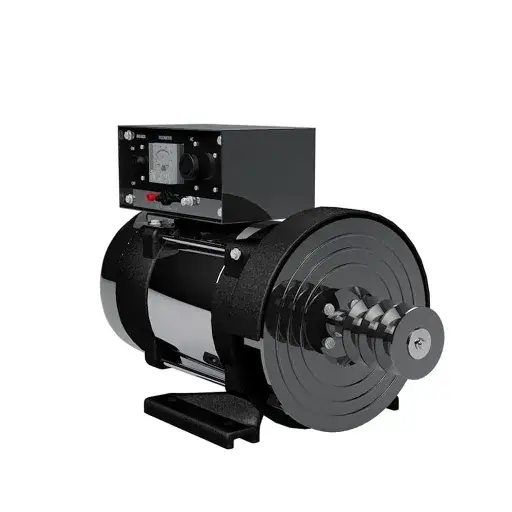
- Fuel Efficiency – Diesel generators are renowned for their superior fuel efficiency, enabling longer operation times with reduced fuel consumption compared to other generator types.
- Durability and Longevity – Built with robust components, these generators are designed to withstand heavy use and harsh conditions, ensuring they remain highly reliable over time.
- Low Maintenance Requirements – With fewer components prone to wear, such as spark plugs in gas engines, diesel generators require less frequent maintenance.
- High Power Output – Small diesel generators are capable of delivering significant power for their size, suitable for running essential appliances or equipment in various settings.
- Portability – Compact and lightweight designs make these generators easy to transport, making them ideal for remote or on-the-go applications.
Compact Design and Portability
The spy diesel generators were designed to save space and maximize efficiency for various situations where a certain degree of portability is necessary. They are lightweight constructions and made from sturdy materials to guarantee hassle-free transport and setup. Wherever they are working — on a jobsite, at an outdoor event, or in a remote location — these generators exemplify portability and power. The installation of ergonomic handles and wheels enhances the excellent portability of these units, allowing users to move them with ease, regardless of the environment’s complexity. Compactness is a virtue for them, as small is big enough to fit into the tightest spaces, yet still pack all that power, pleasing the demands of modern consumers.
Durability and Robust Construction
Mobile generators have been designed, thanks to their durability and robust construction, to withstand harsh conditions and extended usage. These generators have often been constructed with high-quality materials, including heavy-duty steel and reinforced components, to perform reliably even in extreme conditions. Weathering-resistant coatings and shock-absorbing frames further enhance the lifespan of these generators, making them suitable for long-term use in construction, emergency response, and off-grid applications. Generators are designed to withstand harsh conditions and maintain optimal performance.
Benefits of Small Diesel Generators
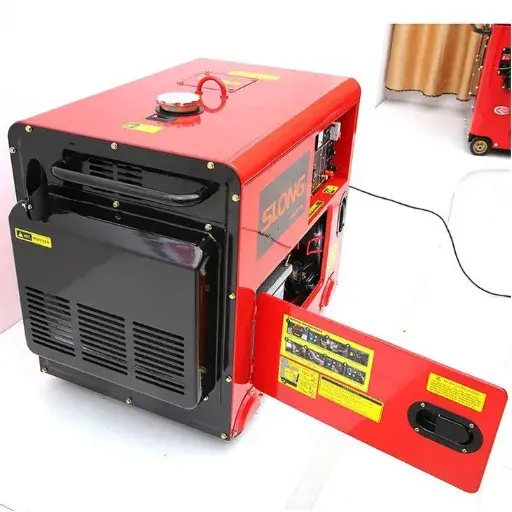
- Fuel Efficiency: Small diesel generators consume less fuel compared to other types, making them cost-effective for extended use.
- Durability: Known for their robust construction, they can withstand heavy use and harsh environments, ensuring long-lasting performance.
- Reliable Power Supply: Diesel generators provide consistent and stable power, minimizing downtime during outages.
- Low Maintenance Requirements: Diesel engines are simpler and require less frequent maintenance, resulting in lower operating costs over time.
- Versatility: These generators are suitable for a wide range of applications, including construction sites, emergencies, and remote areas.
Reliable Power Source for Emergencies
When emergencies arise, having a reliable power source at hand ensures continuity and guarantees safety. They are indeed reliable because they are durable and efficient, especially under harsh weather conditions; they can run for several hours. Thus, they meet the emergency power backup needs of hospitals, data centers, and critical infrastructures. On newer models, however, advancements in technology have made them more fuel-efficient and environmentally friendly, allowing them to meet stringent emissions standards without compromising power. Diesel generators remain a well-balanced solution for emergencies through their reliability, economy, and adaptability.
Cost-Effectiveness and Operational Savings
The diesel generators, in terms of cost-effectiveness and savings, indeed provide certain critical advantages. With a high energy density, diesel provides high power per unit of energy compared to many other fuels. Depending on the intensity of consumption, this makes operating costs favorable for the generator. Heavy-duty construction and a limited number of parts susceptible to wear and tear also require diesel generators to undergo periodic maintenance even more frequently than many alternative systems. According to recent data, businesses seeking long-term savings often utilize diesel generators, which ensure fuel efficiency and minimize downtime during critical operations. These factors, combined, make diesel generators a valuable choice for industries that need to reduce costs while ensuring reliability.
Practical Maintenance Tips for Diesel Generators
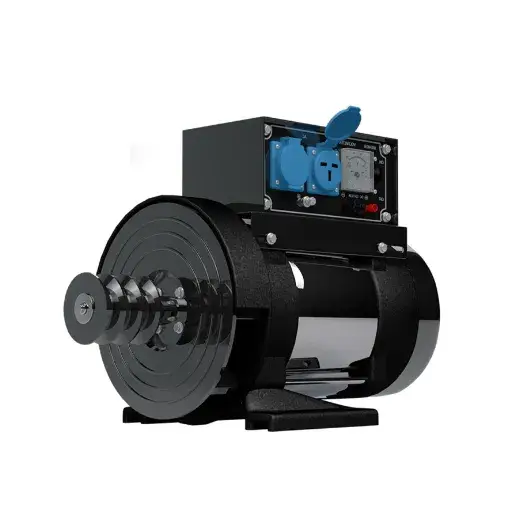
- Regularly Check and Change the Oil
Check the oil levels regularly and follow the manufacturer’s recommended oil change interval to keep everything running smoothly. - Clean or Replace Air Filters
Foul air filters reduce efficiency. Inspect and clean the air filters regularly, or replace them when necessary. - Inspect and Replace Fuel Filters
It is essential to regularly check and replace the fuel filters to prevent clogging and ensure uninterrupted fuel flow. - Test and Charge the Battery
The battery should be fully charged and its condition tested periodically to prevent unexpected failures. - Monitor and Top Off Coolant Levels
Maintaining coolant levels is crucial to prevent overheating during safe operating temperatures for the generator.
Importance of Regular Servicing
Regular servicing of a diesel generator is crucial for its longevity and optimal functioning. The latest data indicate that failing to conduct routine maintenance ranks among the top causes. This means unforeseen breakdowns and higher repair costs are mainly due to the absence of scheduled maintenances. Scheduled visits can potentially identify worn-out parts and leaks in fluids before they lead to sudden failures. Well-maintained generators will provide better fuel efficiency and reduce environmental pollution. Through consistent servicing, a reliable and uninterrupted power supply can be guaranteed for businesses and individuals, even in critical situations.
Battery Care and Maintenance
A battery requires regular care and maintenance to ensure reliable performance and a reasonably long lifespan. I usually check battery terminals for corrosion, clean them when necessary, and tighten connections. I keep an eye on the charge level, too, so the battery never goes through a deep discharge without my knowledge, allowing it to recharge as quickly as possible. Adopting this approach keeps the battery in peak working condition while also stopping any nasty surprises from occurring.
Best Practices for Maximizing Generator Performance
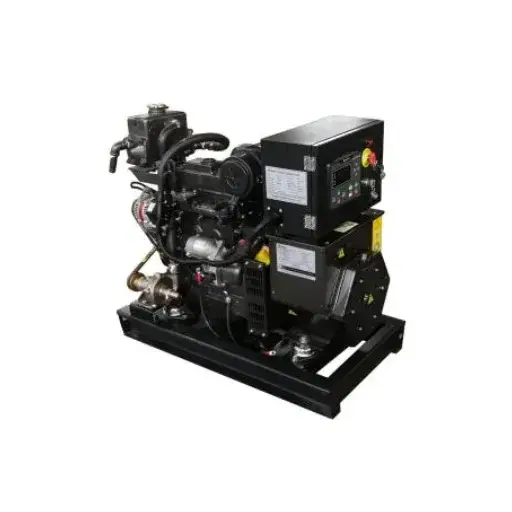
- Perform Regular Maintenance – Schedule routine inspections to check for wear, leaks, or other potential issues. Replace filters and fluids as recommended by the manufacturer.
- Keep It Clean – Ensure the generator is free from dirt, debris, and moisture to prevent damage and ensure smooth operation.
- Operate in a Ventilated Area – Place the generator in a well-ventilated space to avoid overheating and ensure proper airflow.
- Test Periodically – Run the generator periodically to ensure it functions properly and remains ready for use in the event of an emergency.
- Use Quality Fuel – Always use fresh, high-quality fuel and consider adding a stabilizer to prevent fuel degradation.
Effective Load Management Techniques
Effective load management is crucial for maximizing generator efficiency and extending its lifespan. Begin by determining the total wattage that all devices you wish to run will require. This will ensure that you operate within the limits of your generator’s capacity, thereby avoiding overload or damage to the generator. Give preference to essential devices such as refrigerators, life-support machines, medical equipment, or heaters, and opt for running them intermittently rather than simultaneously. Whenever possible, use energy-saving appliances to reduce overall load requirements. Aside from this, periodically check to balance the loads drawn from several outlets of the generator, so that no specific circuit becomes overloaded. The better you load-manage using the methods mentioned above, the better optimized your generator will be, fuel will be saved, and it will be available when you need it most each time.
Ensuring Proper Ventilation
⚠️ Safety Alert: One of the most essential safety measures when using a generator is proper ventilation to prevent the buildup of harmful fumes in the air, such as carbon monoxide. Such fume-generating devices should be installed outside the structure of buildings, with a minimum distance of 20 feet from any opening, such as windows, doors, and air vents. Position the exhaust pipe of generators as far as practicable from any habitable quarters to minimize the chance of carbon monoxide poisoning. It has been verified that most people wonder whether a small diesel generator can be utilized in garages with open doors, and this is not true. This is because toxic fumes can still accumulate inside, even if the door is open. Always begin with a safe outdoor area, and if possible, purchase a reliable carbon monoxide alarm to supplement.
Recent Trends and Innovations in Diesel Generators
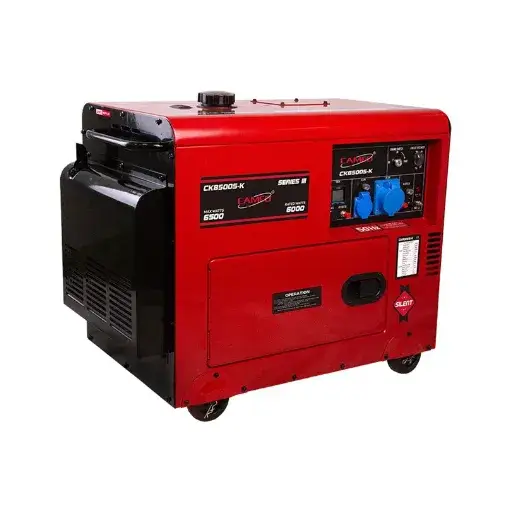
In recent years, significant advancements have occurred in the development of diesel generators, with a focus on both efficiency and environmental sustainability. The current generators are designed to use less fuel while still providing the required power at reduced operational costs for users. Progress in cleaner emission technologies and improvements in exhaust treatment systems have helped bring the diesel generators up to par with new environmental standards. There are additional noise control mechanisms to reduce the noise generated by the units, making them more user-friendly, even in homes or urban centers. Another significant development is the use of innovative technology, which enables the generation of smart generators that can be managed through applications loaded on devices connected to the generator via a separate system. These enhancements make diesel generation equipment significantly more efficient, environmentally friendly, and practical than it has ever been.
Smart Generators with IoT Integration
By upgrading a small diesel generator to an intelligent, IoT-monitored unit, efficiency and usage have increased. This refers to generators that are smart and reliable, allowing users to assess the performance of various metrics, including fuel consumption, power output, and service periods, even when they are away. This promotes dependability and prevents downtime because such warning systems allow for the timely rectification of potential failures. Innovative solutions for generators that can be used in homes and businesses are on the rise, as indicated by recent search patterns that show an interest in achieving energy conservation and performance improvement through technology that allows for control and monitoring to a certain level. A smart generator is the ideal way to integrate with a smart home, offering high energy efficiency and convenient makeshift power for today’s fast-paced lifestyles.
Compact and Lightweight Designs for Modern Portability
Contemporary customers are interested in power solutions that would support their fast-paced lifestyle. Smart generators solve the problem through sleek and slim revolutionary equipment. Search engines have shown a significant increase in the number of searches related to portable power supplies for camping, caravans, and survival kits. They claim that these generators provide the ideal source of energy, offering both energy savings and portability, while providing access to electricity in remote locations with ease.
Reference Sources
The following five references can be utilised as authoritative sources on “small diesel generators” to check the accuracy of your article:
| Source Title | Description |
|---|---|
| Part-load economy of diesel-electric generators | This paper describes the study of the efficiency and economic consequences of running small diesel generators at partial loads. |
| Preparing an existing diesel power plant for a wind hybrid retrofit | Concerns the integration of small diesel power plants with hybrid systems, with emphasis on lessons learned from a case study in Alaska. |
| Hardware simulation of diesel generator and microgrid stability | Gives an overview of the diesel generator in microgrid systems, analysing their implications in terms of stability and performance. |
| Use of performance monitoring to improve the reliability of emergency diesel generators | Discusses the use of performance monitoring to increase the reliability of diesel generators under emergency conditions. |
| An Alaska case study: Diesel generator technologies | In particular, the study analyzed performance parameters and technologies of diesel generators for intermediate and remote hybrid systems. |
Frequently Asked Questions (FAQs)
What are the main features of a small diesel generator?
A small diesel generator typically features a compact design, making it portable and easy to transport. It is powered by a diesel engine, which offers higher fuel efficiency compared to gasoline engines. These generators provide reliable power for various applications, including residential use, RVs, and commercial mobile needs. Many models come with an electric start option for ease of use.
How does a small diesel generator compare to a portable generator?
While both small diesel generators and portable generators serve similar purposes, diesel generators tend to be more fuel-efficient and have a longer service life. Diesel engines are built for durability and can handle heavier loads compared to gasoline-powered portable generators. However, portable generators may be more versatile for light-duty applications.
What applications can benefit from using a small diesel generator?
Small diesel generators are ideal for a variety of applications, including providing backup power during outages, powering RVs, lighting towers for outdoor events, and even use on construction sites. Their fuel efficiency makes them suitable for long-term use in commercial settings, while their portability enables easy transportation to different locations.
What is the typical run time for a small diesel generator?
The run time of a small diesel generator can vary based on its fuel tank capacity, load demand, and engine efficiency. Generally, diesel generators can run for several hours on a single tank of fuel, with many models capable of operating for 10 to 20 hours, depending on their fuel consumption rates. This makes them a reliable source of power for extended periods.
Are small diesel generators environmentally friendly?
Small diesel generators are generally more fuel-efficient than their gasoline counterparts, resulting in lower emissions. However, they still produce diesel exhaust, which contains pollutants. Some models are designed with eco mode features that optimize fuel consumption and reduce emissions, making them a more environmentally conscious choice.
What should I consider when choosing a small diesel generator?
When selecting a small diesel generator, consider factors such as power output (measured in kW), fuel efficiency, portability, and noise levels. Additionally, check for compatibility with your intended applications, determine whether you require a manual or electric start, and verify the availability of service and support from local dealers.
Can a small diesel generator be used for RVs?
Yes, small diesel generators are suitable for RVs, providing reliable power for appliances, lighting, and other electrical needs while camping or traveling. Many models are designed to be lightweight and compact, making them easy to install and transport in recreational vehicles.
How can I maintain my small diesel generator?
Regular maintenance is crucial for ensuring the longevity and efficiency of your small diesel generator. This includes checking and changing the oil, inspecting the fuel system, cleaning or replacing air filters, and ensuring proper battery maintenance. Additionally, keeping the generator clean and storing it properly when not in use will help extend its service life.
